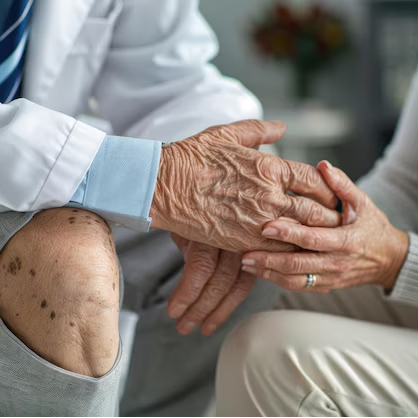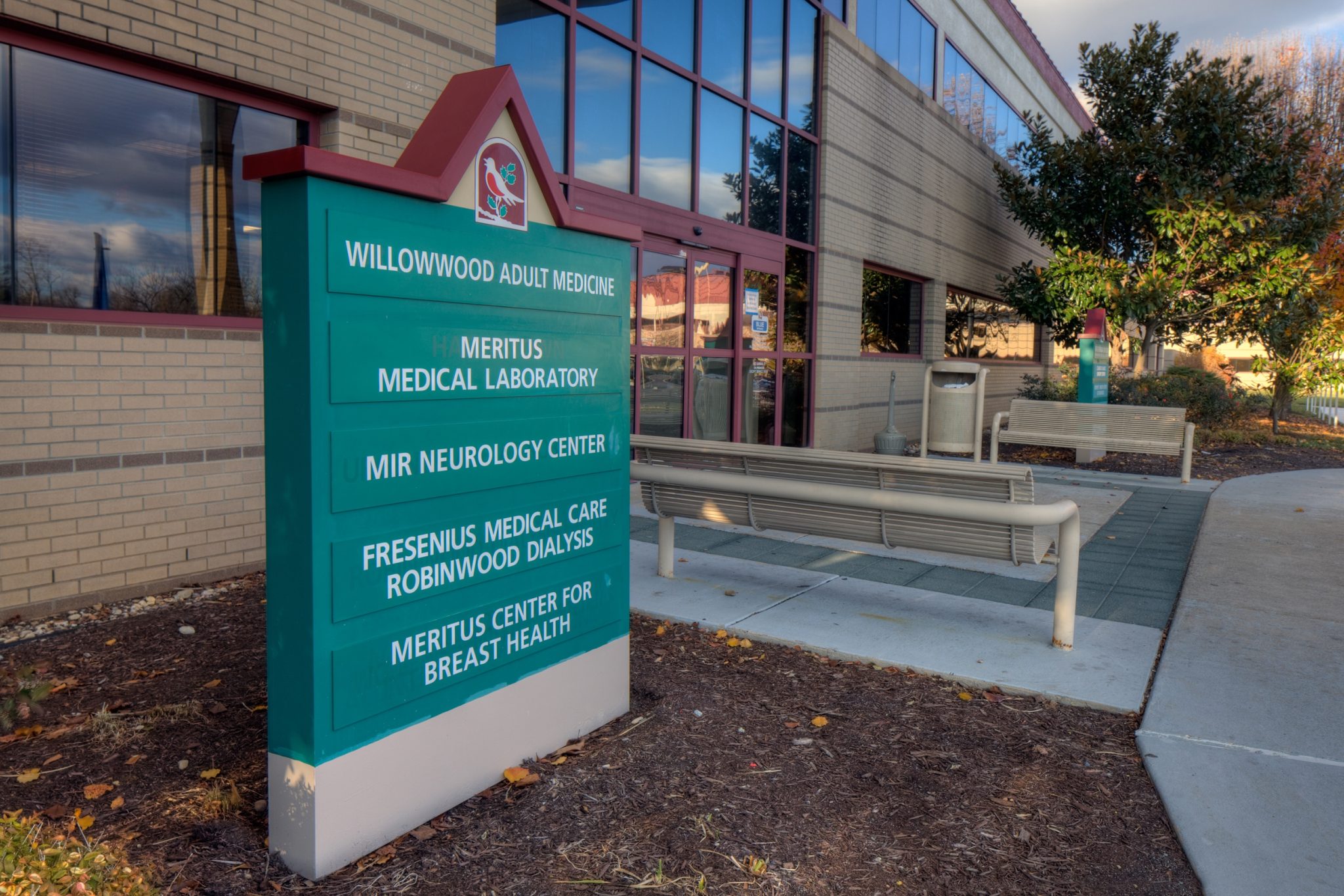We're Hiring! Join Our Team as a Nurse Practitioner - Apply Now. to Make a Difference in Patient Care!
Parkinson’s Disease

Parkinson’s Disease Treatment and Management Services
Parkinson’s disease is a progressive neurodegenerative disorder that primarily affects movement control. It occurs when the brain’s dopamine-producing cells deteriorate, leading to a range of motor and non-motor symptoms. While Parkinson’s disease can be challenging, early diagnosis and a comprehensive treatment plan can significantly improve quality of life. At our clinic, we specialize in the diagnosis, treatment, and management of Parkinson’s disease, offering personalized care to help individuals manage symptoms and maintain independence for as long as possible.
What is Parkinson’s Disease?
Parkinson’s disease is a chronic condition that affects the nervous system, specifically the area of the brain responsible for coordinating movement. As the disease progresses, the loss of dopamine-producing neurons leads to the hallmark symptoms of Parkinson’s:
- Tremors: Involuntary shaking or trembling, usually starting in the hands or fingers.
- Bradykinesia: Slowness of movement, making everyday tasks more difficult and time-consuming.
- Muscle Rigidity: Stiffness in the limbs or torso, which can cause discomfort and limit mobility.
- Postural Instability: Impaired balance and coordination, increasing the risk of falls.
In addition to motor symptoms, Parkinson’s disease can also cause non-motor symptoms, such as depression, anxiety, sleep disturbances, cognitive changes, and difficulty with speech and swallowing. While there is no cure for Parkinson’s disease, treatment options are available to alleviate symptoms and improve quality of life.
Symptoms of Parkinson’s Disease
The symptoms of Parkinson’s disease can vary widely from person to person, and they tend to develop gradually over time. Common symptoms include:
- Tremors: Shaking of the hands, arms, or legs at rest, often referred to as “resting tremors.”
- Bradykinesia: Slowness of movement, which can make it difficult to perform routine tasks such as buttoning a shirt or brushing teeth.
- Muscle Rigidity: Stiffness and inflexibility in the limbs and trunk, often accompanied by pain and discomfort.
- Impaired Balance: Difficulty standing up straight or walking, leading to an increased risk of falls.
- Changes in Speech: A soft, monotone voice or difficulty articulating words.
- Cognitive and Mood Changes: Depression, anxiety, memory problems, and difficulty concentrating are common in later stages.
- Sleep Disorders: Insomnia, excessive daytime sleepiness, or disrupted sleep cycles.
- Digestive Issues: Constipation and other gastrointestinal problems are common among those with Parkinson’s.
The progression of these symptoms varies among individuals, and some may experience symptoms more intensely than others.
Causes and Risk Factors
The exact cause of Parkinson’s disease is unknown, but several factors are believed to contribute to its development:
- Genetics: A family history of Parkinson’s disease may increase the risk, though the majority of cases are not directly inherited.
- Age: Parkinson’s disease is more common in individuals over the age of 60, although early-onset Parkinson’s can occur.
- Environmental Factors: Exposure to toxins, such as pesticides or industrial chemicals, may contribute to the development of Parkinson’s disease.
- Gender: Men are more likely than women to develop Parkinson’s disease.
While these factors may increase the risk, it’s important to note that Parkinson’s disease can occur without any known cause or risk factors.
Diagnosis of Parkinson’s Disease
Diagnosing Parkinson’s disease can be challenging, as there is no single test to confirm the condition. Our comprehensive diagnostic process includes:
- Medical History Review: A thorough review of symptoms, family history, and risk factors.
- Neurological Examination: A detailed physical exam to assess motor function, reflexes, coordination, and balance.
- Brain Imaging: In some cases, imaging studies, such as MRI or PET scans, may be used to rule out other conditions or assess brain activity.
- Symptom Assessment: Parkinson’s disease is often diagnosed based on the presence of characteristic motor symptoms, such as tremors, rigidity, and bradykinesia.
Early diagnosis is crucial in managing Parkinson’s disease effectively and providing the appropriate treatment options.
Treatment Options for Parkinson’s Disease
While there is currently no cure for Parkinson’s disease, a variety of treatment options are available to help manage symptoms and improve quality of life. Our clinic offers a holistic approach to Parkinson’s disease management, combining medication, therapy, lifestyle changes, and, in some cases, surgical interventions.
1. Medications
Medications are often the first line of treatment for Parkinson’s disease. They work by increasing dopamine levels in the brain or mimicking dopamine’s effects. Common medications include:
- Levodopa: The most common and effective treatment, which is converted into dopamine in the brain.
- Dopamine Agonists: Medications that mimic dopamine to help stimulate brain receptors.
- MAO-B Inhibitors: These medications prevent the breakdown of dopamine in the brain.
- COMT Inhibitors: These medications work alongside levodopa to prolong its effect.
- Anticholinergics: Used to reduce tremors and rigidity in some patients.
Medications are typically adjusted over time to ensure the most effective symptom management.
2. Physical and Occupational Therapy
Physical therapy (PT) and occupational therapy (OT) are essential components of Parkinson’s disease treatment. These therapies focus on improving mobility, balance, and functional independence. Specific treatments may include:
- Exercise: Regular physical activity can improve strength, flexibility, and overall well-being.
- Balance Training: Techniques to help improve coordination and prevent falls.
- Assistive Devices: Occupational therapists can recommend devices to help with daily tasks, such as specialized utensils or mobility aids.
3. Speech Therapy
Speech therapy is important for individuals experiencing speech and swallowing difficulties due to Parkinson’s disease. Therapists work on exercises to improve voice volume, clarity, and swallowing function.
4. Surgical Interventions
In some cases, surgical options may be considered for individuals whose symptoms are not adequately controlled with medication:
- Deep Brain Stimulation (DBS): A procedure in which electrodes are implanted in the brain to regulate abnormal brain activity, reducing tremors and improving motor function.
- Lesioning Procedures: In rare cases, targeted lesions in the brain may be created to alleviate severe symptoms.
5. Lifestyle Changes and Support
Managing Parkinson’s disease also involves making lifestyle adjustments to enhance overall well-being:
- Healthy Diet: A balanced diet rich in fruits, vegetables, and whole grains can support brain health and digestion.
- Stress Management: Techniques such as mindfulness, meditation, and relaxation can help reduce stress and improve quality of life.
- Support Groups: Joining a support group can provide emotional support and connect individuals with others experiencing similar challenges.
Why Choose Our Parkinson’s Disease Services?
- Comprehensive Care
We offer a multidisciplinary approach to Parkinson’s disease, combining medical treatment, therapy, and lifestyle support to address all aspects of the condition. - Experienced Specialists
Our team includes neurologists, physical therapists, occupational therapists, speech therapists, and support staff, all working together to provide the best care for Parkinson’s patients. - Personalized Treatment Plans
We understand that Parkinson’s disease affects each person differently. Our treatments are tailored to meet the unique needs of each patient, ensuring the most effective care. - Ongoing Support
Parkinson’s disease is a long-term condition, and we are committed to supporting you throughout your journey, offering follow-up care and adjustments to your treatment plan as needed.
Contact Us for Parkinson’s Disease Care
If you or a loved one has been diagnosed with Parkinson’s disease, or if you’re experiencing symptoms, contact us today to schedule a consultation. Our team is dedicated to providing expert care and support, helping you manage Parkinson’s disease and maintain an active, fulfilling life.

























